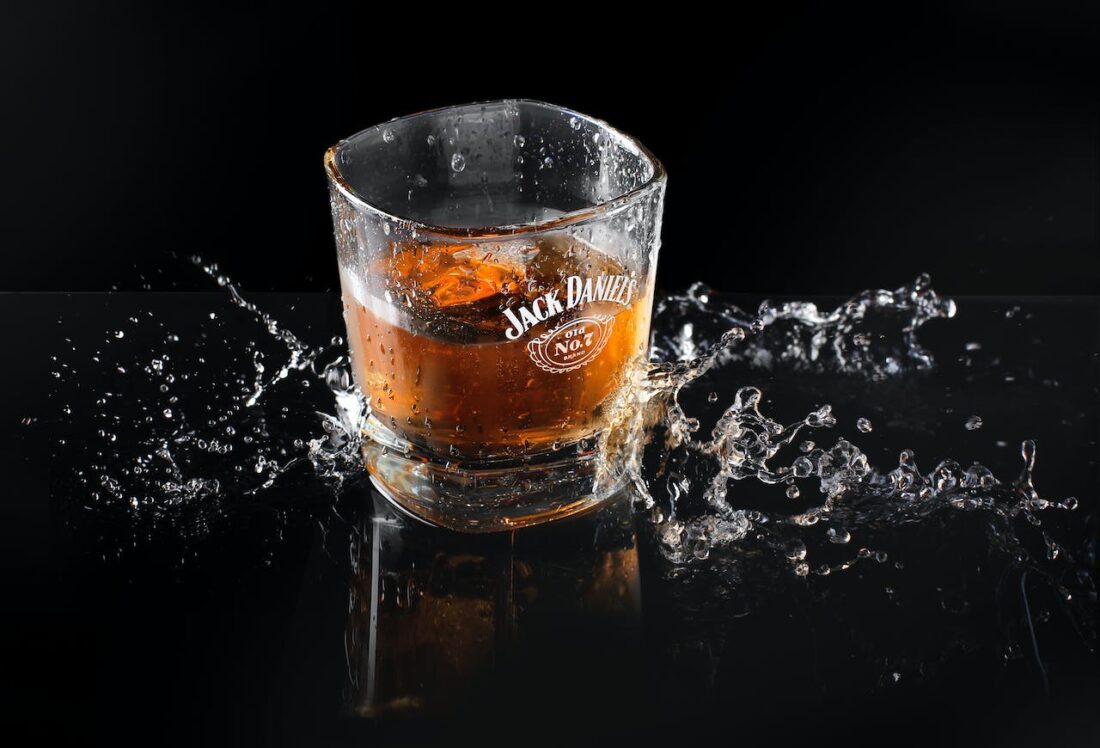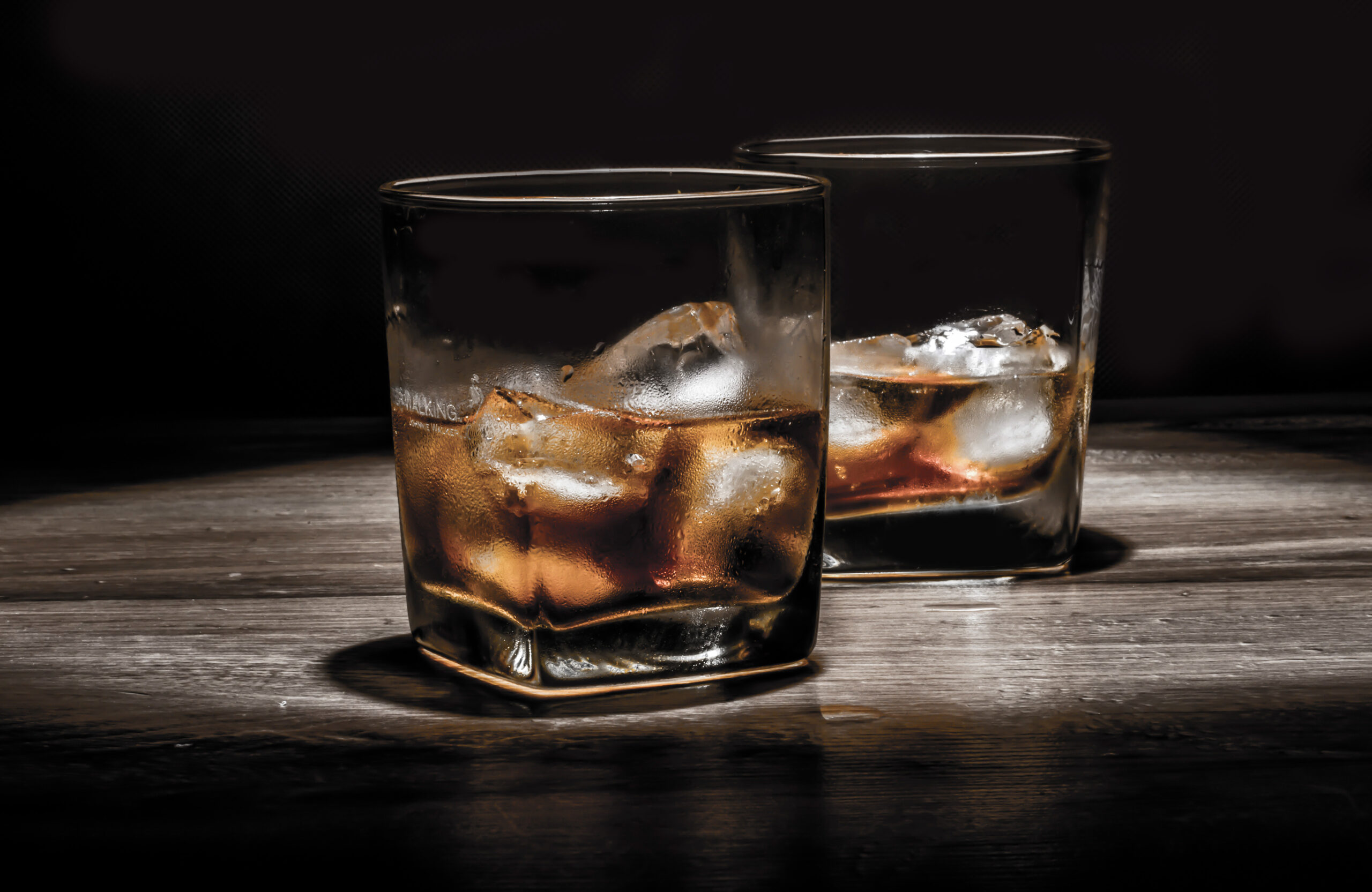
Whiskey is a beloved spirit that many people enjoy drinking. However, there is some debate about whether or not whiskey should be chilled before being served. Some people believe that whiskey should be served at room temperature, while others think that it should be chilled to enhance the flavor.
Those who believe that whiskey should be chilled argue that it can help to mellow out the harshness of the alcohol and make the flavors more pronounced. They also point out that chilling whiskey can be a refreshing way to enjoy the drink, especially on a hot day. On the other hand, those who prefer to serve whiskey at room temperature argue that chilling it can dull the flavors and aromas, making it less enjoyable to drink.
Table of Contents
The Basics of Whiskey Storage
Optimal Storage Conditions
The ideal storage conditions for whiskey include a cool, dark, and dry environment. This means storing the whiskey bottles in a cabinet or closet away from direct sunlight and heat sources.
It is also important to store whiskey bottles upright, unlike wine bottles that are stored horizontally. This is because the cork in whiskey bottles can dry out and degrade over time if the whiskey is stored on its side. Storing the bottles upright ensures that the cork remains moist and intact, preserving the whiskey’s quality.
Effects of Temperature on Whiskey
Temperature is a critical factor in whiskey storage. Extreme temperatures, whether hot or cold, can negatively affect the taste and quality of whiskey.
When whiskey is exposed to high temperatures, it can cause the alcohol to evaporate, leaving behind a less potent and flavorful spirit. On the other hand, storing whiskey at freezing temperatures can cause the liquid to expand and contract, potentially damaging the bottle and affecting the taste of the whiskey.
To prevent these issues, it is recommended to store whiskey at a stable, cool temperature between 55 and 65°F (13 and 18°C). This ensures that the whiskey remains in optimal condition, preserving its flavor and quality for years to come.
Understanding Whiskey Chilling
Whiskey is one of the most popular spirits globally, enjoyed by millions of people worldwide. One of the most controversial topics among whiskey enthusiasts is whether or not to chill the drink. This section will explore the reasons for and against chilling whiskey and the different methods of chilling whiskey.
Reasons to Chill Whiskey
There are several reasons why one might want to chill whiskey. One of the most common reasons is to reduce the drink’s temperature, making it more refreshing, especially during hot weather. Chilling whiskey can also help to reduce the harshness of the alcohol’s taste, making it easier to drink, especially for those who are new to whiskey.
Another reason to chill whiskey is to enhance the flavor. According to some whiskey experts, chilling whiskey can help to bring out some of the drink’s subtle flavors that might be missed when served at room temperature.
Methods of Chilling Whiskey
There are several methods of chilling whiskey, each with its advantages and disadvantages. One of the most popular methods is to add ice cubes to the drink. Ice cubes are readily available, and they can help to bring down the drink’s temperature quickly. However, ice cubes can also dilute the whiskey, altering the taste.
Another popular method of chilling whiskey is to use whiskey stones. Whiskey stones are small, non-porous cubes made of materials such as soapstone or stainless steel. They are designed to be stored in the freezer and then added to the drink to chill it without diluting it.
A third method of chilling whiskey is to use a whiskey wedge. A whiskey wedge is a silicone mold that creates a wedge-shaped ice cube that fits perfectly into a glass. The wedge-shaped ice cube melts slowly, reducing dilution while chilling the drink.
 photo credit: pxhere.com
photo credit: pxhere.com
Preservation and Longevity
Influence of Chilling on Preservation
Whiskey is a spirit that is typically consumed at room temperature or slightly chilled, depending on personal preference. However, the question arises as to whether whiskey needs to be chilled to preserve its taste and quality. According to Indowineliquor.com, whiskey should not be chilled, as it can alter the taste and consistency of the spirit. Cold temperatures can cause the whiskey to lose its flavor and aroma, which can impact the overall quality of the drink. Therefore, it is recommended to store whiskey at room temperature to maintain its taste and quality.
Long-Term Storage Considerations
Whiskey can be kept for a long time if stored properly. According to Distiller.com, whiskey bottles can last a lifetime if stored upright and in a cool, dry place away from direct sunlight. It is also important to ensure that the bottle is sealed tightly to prevent air from entering and oxidizing the whiskey.
Moreover, it is recommended to store whiskey in a consistent temperature environment. According to Advancedmixology.com, whiskey should be stored in an area that consistently stays at 59 to 68 degrees Fahrenheit (15–20 °C) to keep it in top condition. Extreme temperatures can cause the whiskey to expand and contract, which can impact the quality of the drink. Therefore, it is important to store whiskey in a cool, dry place away from temperature fluctuations.
Frequently Asked Questions
What is the ideal serving temperature for whiskey?
The ideal serving temperature for whiskey depends on personal preference. Some people prefer to drink it neat at room temperature, while others prefer it chilled. Some whiskeys are better chilled to have a refreshing drink, but it is recommended to avoid freezing them as it mutes their aroma and flavor. A big chunk of ice or whiskey stones can be used to chill the whiskey.
Can adding ice to whiskey enhance its flavor profile?
Adding ice to whiskey can enhance its flavor profile by softening the harshness of the alcohol and bringing out the subtle flavors in the whiskey. However, it is important to note that adding too much ice can dilute the whiskey and change its taste. According to whiskeybon.com, a 40% ABV whiskey will freeze at around -26C and pure ethanol freezes at -114C, so it will be between those two numbers depending on the proof of the whiskey.
Should Irish whiskey be consumed neat or with water for beginners?
Irish whiskey can be consumed either neat or with water, depending on personal preference. For beginners, it is recommended to start with a small amount of water to help open up the flavors in the whiskey and make it easier to drink. However, adding too much water can dilute the whiskey and change its taste. According to lovingwhiskey.com, most whiskeys contain 40% Alcohol By Volume (ABV) or higher, which would take -26°C or -12°F to freeze.
What are the benefits of drinking whiskey with hot water?
Drinking whiskey with hot water can help soothe a sore throat and alleviate cold and flu symptoms. It can also help to warm the body on a cold day. However, it is important to note that adding hot water to whiskey can change its taste and aroma. It is recommended to use water that is just below the boiling point to avoid scorching the whiskey.
How does the addition of soda change the whiskey tasting experience?
Adding soda to whiskey can change the tasting experience by adding a sweet and fizzy element to the drink. It can also help to dilute the whiskey and make it more palatable for those who find it too strong. However, it is important to note that adding soda can change the taste and aroma of the whiskey and may not be suitable for those who prefer to drink it neat.
Conclusion
Whether or not whiskey needs to be chilled is a matter of personal preference. Some people may prefer to drink their whiskey neat, while others may enjoy it chilled. However, it is important to note that chilling whiskey can affect its taste and aroma, as well as its ability to open up and reveal its full flavor profile.
If one prefers to chill their whiskey, there are several options available. Whiskey stones can provide a slight chill without affecting the taste, color, or aroma of the whiskey. Alternatively, chilling the whiskey in a refrigerator or freezer can also be effective, but it is important to note that this can mute some of the notes on the nose, which can affect the flavor of the whiskey.
Ultimately, the best way to enjoy whiskey is to experiment with different serving temperatures and find what works best for one’s own palate. Whether one prefers their whiskey chilled or at room temperature, the most important thing is to savor the complex flavors and aromas that make whiskey such a beloved spirit.
Related Posts
Here are some related posts that might interest you:
- Top Tips: how to improve your whisky tasting skills: This post provides helpful tips on how to improve your whisky tasting skills. It includes information on how to identify different aromas and flavors in whisky and how to properly taste and savor your drink.
- Irish Whiskey isn’t only that “smooth” beverage you heard of: This post explores the complexity and diversity of Irish whiskey beyond its reputation as a “smooth” drink. It delves into the history and production of Irish whiskey and provides recommendations for different types to try.
- On the way back to Age Statement: This post discusses the importance of age statements in whisky and the trend towards non-age statement whiskies. It explores the impact of age on flavor and provides recommendations for age statement whiskies to try.
- How to share your whisky passion: This post provides tips on how to share your love of whisky with others. It includes suggestions for hosting tastings, sharing your collection, and introducing newcomers to the world of whisky.
- Does Whiskey Age in the Bottle? (Whiskey Maturation Outside Barrel): The article explores whether whiskey ages in the bottle and emphasizes the critical role of the maturation process in wooden barrels and discusses factors affecting whiskey aging, such as storage conditions and sealing methods.



